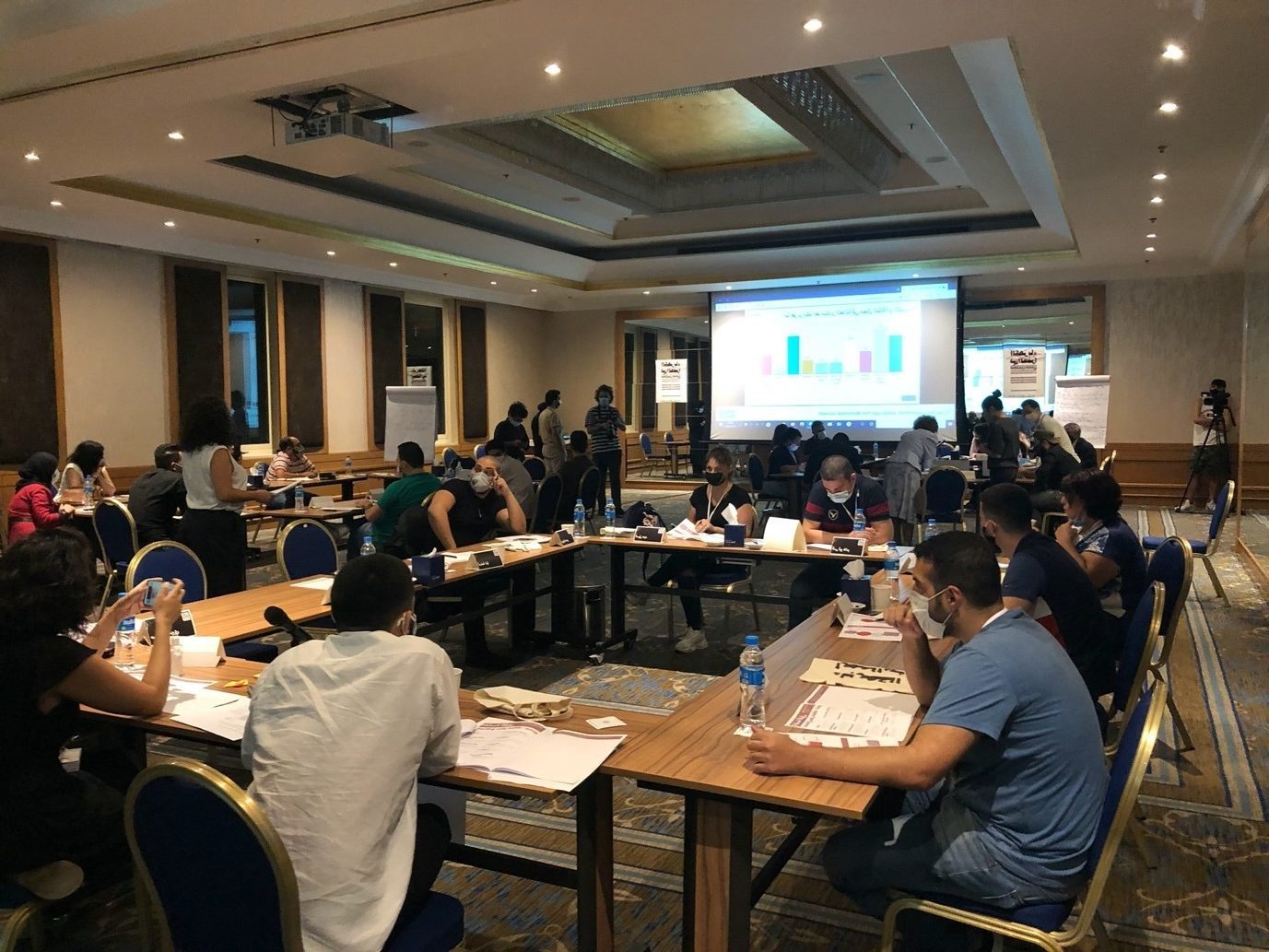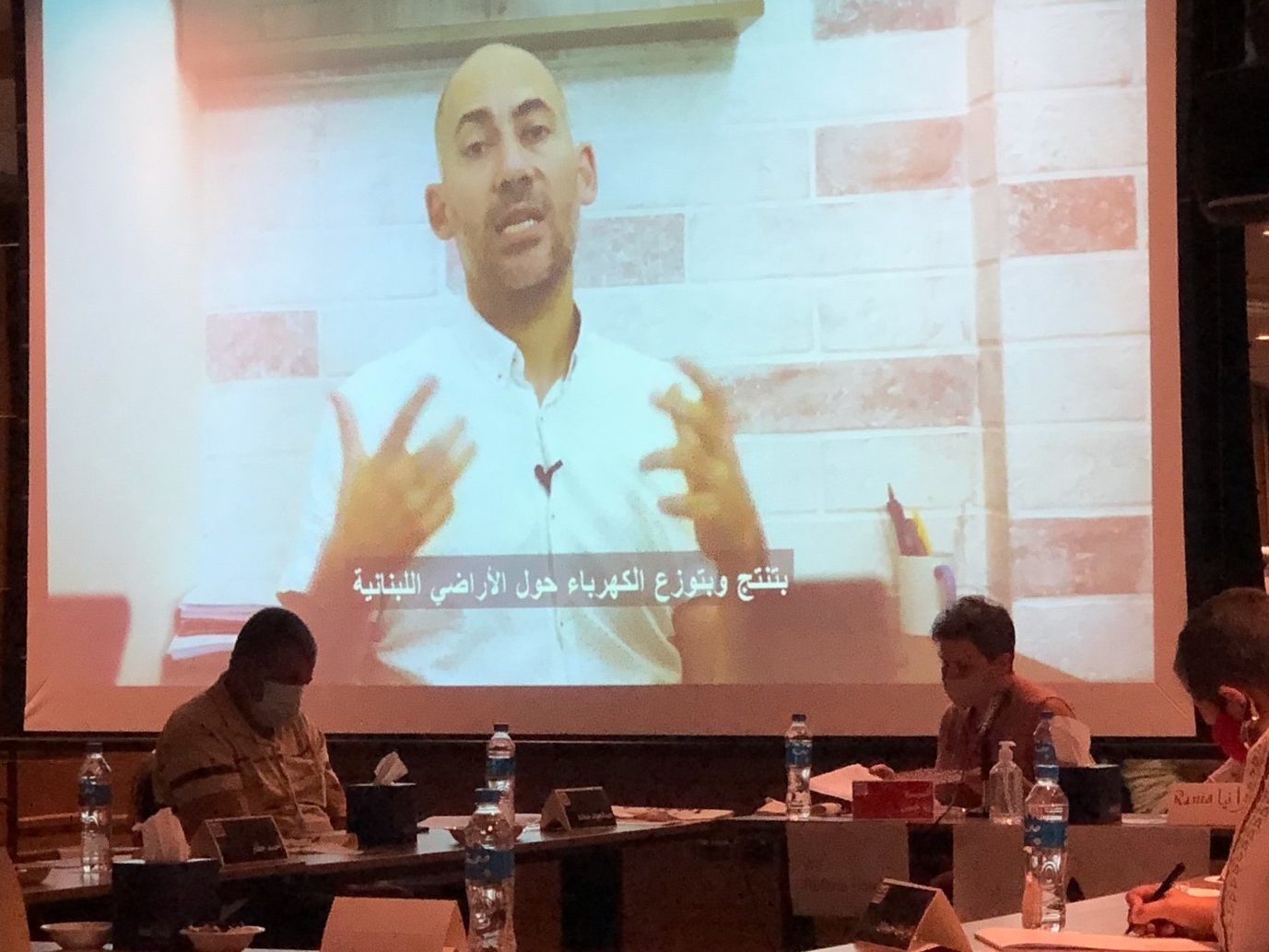RELIEF Mass Displacement Middle East
Dr Ala'a Shehabi
A pilot of the first Citizens’ Assembly launched with its first session on Friday 23 October 2020 under challenging conditions.
The physical meeting took place under several adaptation measures including a reduction in the number of members from 50 to 33, covid-screening, social distancing and mask-wearing. To limit the need for overall face to face contact, the sessions were also reduced to two hours spread over three days, with digital engagement with presentations and material in the interim periods between each session.
During the first session of the Citizens’ Assembly on energy justice, expert speakers faced challenging and insightful questions from 33 members of the public representing the Hamra neighbourhood population. The members were specifically selected to reflect the community in Hamra across characteristics like age, gender and nationality. They had all agreed to commit eight hours of their time to hear expert evidence and deliberate on electricity and energy justice.
Ziad Aburish, a historian, presented a historical account of the establishment of EDL, the leading electricity company. Jessica Obeid, an energy expert, set the scene with basic facts of the electricity sector, and the budget deficit caused by energy subsidies. RELIEF Centre community research coordinator Mayssa Jallad presented data on electricity supply and costs from the Hamra Neighbourhood. Najat Saliba, professor of Analytical Chemistry at AUB, discussed the impact the increasing use of diesel generators is having on air pollution and public health, especially cancer rates.
The 33 assembly members watched a series of expert presentations setting the scene and informing them of the discussions they will have over the next three sessions in the following week before they make their recommendations on how their community in Hamra and Lebanon can achieve energy justice. The gathered members gave feedback through a range of interesting, challenging and practical questions throughout the event and in a dedicated Q&A session.
“This type of gathering gives Lebanese youth a voice and space to express their opinions on issues where our opinions have never mattered” Kamal, 33.

In the second plenary discussion dimensions of energy justice were explored and the members discussed their key priorities. 17% of the members thought affordability and responsibility in the energy sector were the two significant dimensions of energy justice that need to be prioritised. Accessibility and sustainability followed with 15% and 13% respectively.
We will be exploring these dimensions further in the course of the Citizens’ Assembly to see if there is a change in these priorities as more presentations are viewed.
When Najat Saliba, was asked if the best solution was more privatisation in the electricity sector she answered that she did not believe replacing one large company with fifty smaller companies will solve the energy crisis, and proposed community renewables where residents co-invest in renewable energy to have control over solar energy production e.g. at the building level.
“I am amazed that there are people in Lebanon sitting this late at 8pm discussing these kinds of topics under this much pressure from all angles.” Najat Saliba
The Citizens’ Assembly was organised by the RELIEF Centre and AUB Issam Fares Institute. The RELIEF Centre is a partnership between University College London, American University of Beirut and the Lebanese University of Beirut.

This is the first-ever independent attempt at a Citizens’ Assembly. The organisers still have to focus on a few key elements such as helping the members understand and navigate the new hybrid model and to think of pathways to impact - to raise the recommendations after the CA concludes.
“The problem of electricity in Lebanon is a political problem, and the solutions are many, but the state does not want to listen to us (...)” Nariman, 56.
For more information on RELIEF, please see here: https://www.relief-centre.org/
Top image credit: israel palacio
Fatemeh Sadeghi
30 May 2024 Feminists in the Global South have stepped out of the conventional territories of ‘women’s matters’ into more fund...